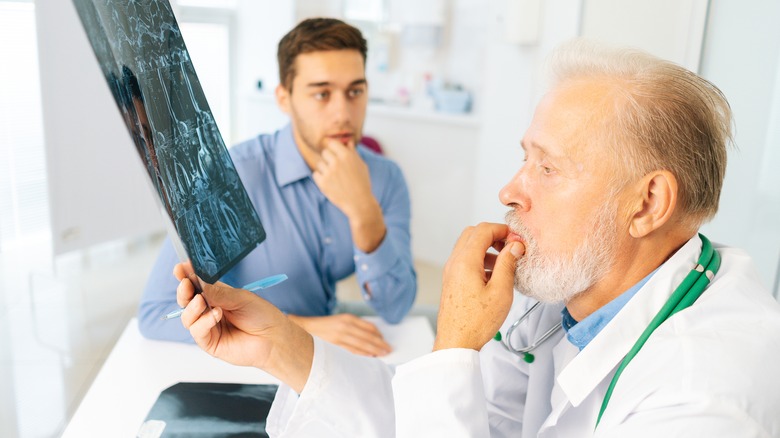Why Cancer In Younger Adults Might Be Rising Across The Globe
According to the National Cancer Institute, roughly 5% of cancer cases across the country occur in young adults aged 15 through 39. While some young people may be genetically predisposed to cancer, experts acknowledge that other unique factors may be at play when it comes to cancer rates in younger individuals. For example, Forbes points out that teens and young adults are often without health insurance coverage and may lack financial security in comparison to older adults. Additionally, some research suggests that the molecular makeup of tumors in young adults is distinctly different from that of kids and older adults, potentially making them more prone to certain cancers.
A new study published in Nature Reviews Clinical Oncology found that cancer rates are on the rise amongst those 50 or younger. As per the research, the study team explained that increased numbers of cancer screenings amongst young people may play a role in these rates. That being said, changes in lifestyle, diet, obesity, microbiome makeup, and exposure to other environmental risk factors during childhood or young adulthood were identified as some of the predominant factors potentially contributing to rising cancer rates in recent years.
How caregivers can help lower children's future cancer risk
Specifically, researchers from the study saw increased rates of breast, thyroid, gallbladder, head and neck, colorectal, prostate, liver, and kidney cancers, amongst others. Such findings were found across various young people populations worldwide including those in the U.S., England, Uganda, and South Korea, reports HealthDay.
One potential contributing factor identified in the study was microbiome makeup. Senior researcher on the study Dr. Shuji Ogino tells HealthDay how the health of our microbiome may influence one's risk for cancer. A balanced gut microbiome is critical for immune support and protecting against inflammation. However, smoking, alcohol consumption, lack of physical activity, and the widespread popularity of over-processed foods can all negatively impact our microbiome and increase one's chances of developing certain cancers, particularly colon cancer.
Dr. Ogino emphasized via HealthDay the importance of preventative measures. One such example includes eating healthy meals that consist of vegetables, fruit, fiber, and healthy fats. Additional measures include getting regular exercise, limiting alcohol consumption and antibiotic use, as well as refraining from smoking. "I think the most important message is: Your kids' cancer risk in the future depends on what you do now," Dr. Ogino told the publication.


